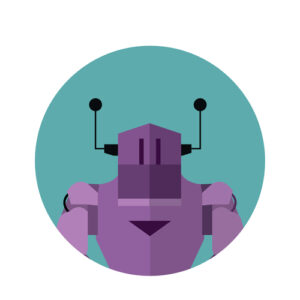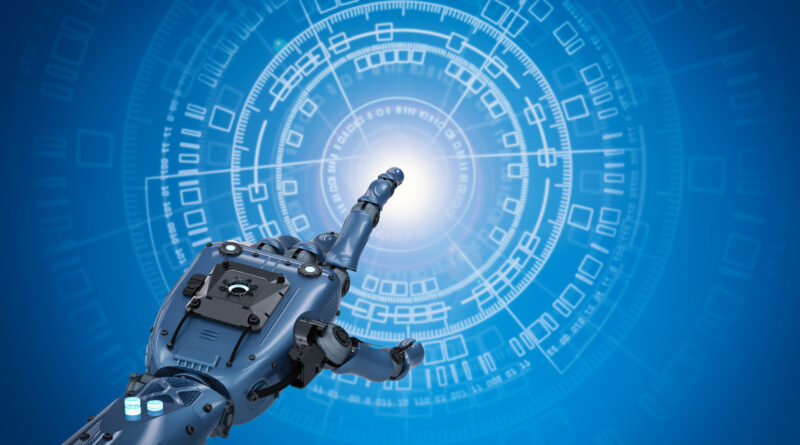The Role of Artificial Intelligence in the Future of Work
The Role of Artificial Intelligence in the Future of Work
Mohammad Hossein Jarrahi, Christoph Lutz, Karen Boyd, and Carsten Østerlund
Artificial Intelligence (AI) has the potential to change how we organize work. However, to truly understand the impact of AI, it’s important to understand the key dimensions of the work context in which it is used. In this short article, we discuss the key dimensions of the current understanding of AI’s role in transforming work.
The technology of AI itself is a crucial factor in its impact on work. The latest generations of AI systems, empowered by deep learning, are distinguishable from previous information systems and even prior AI systems due to their self-learning capacity. This means that AI systems can expand their intelligence and learning beyond pre-specified structures and logics, as opposed to previous systems where human input was often required. This opens up the possibility of AI systems taking on knowledge-intensive tasks that were previously the sole domain of humans. For example, AI can now parse and interpret language (exemplified in the rise of technologies such as ChatGPT), generate text dynamically, and provide image recognition capabilities. However, the downside is that the logic of the AI system may not be transparent to human operators, users, or even developers, and the system may not explain how and why it is making its inferences (Jarrahi, Lutz, and Newlands 2022).
—AI performance can only be understood in light of the work context, practices, and its interaction with AI—
We argue that the transformative power of AI in the work context stems from three elements: its descriptive and predictive models, big data, and changing work practices (see Figure 1). These elements are interdependent, as examining the predictive models that go into AI will shed light on the data flows and work practices that sustain and are driven by the models. Following the data feeding AI models will also bring to light the work practices that produce and are incentivized by the data. The interplay between data flows, work practices, and AI models’ predictions reveals the ongoing and emerging organizational practices. This is where data in various forms can be compared, converted, and given authority as a meaningful project of the future. AI performance can only be understood in light of the work context, practices, and its interaction with AI.

Figure 1: Three intertwined elements, defining AI performance in the work context
The true impact of AI is realized not in the lab but in the context of daily work practices. A contextual study examines the technology at work in conjunction with organizational policies and routines. We highlight some contextual factors at the macro and micro levels, including regulation and policies, field and institutional logics, organizational culture, and the skills and competencies of workers.
Macro-level contextual factors include regulation and policies, field and institutional logics (differential between different industries), and cultural and social norms. AI policies are emerging worldwide, regulating the benefits and minimizing the risks of AI. However, policies have to consider data flows and work practices in addition to the AI models. Different fields and industries operate under different institutional logics, affecting how AI is used. Cultural and social norms also play a role in shaping the use of AI in different contexts.
 At the micro level, there are several contextual factors that play a crucial role in determining the nature of human-AI interaction within an organization. Examples include the specific logic of practice that defines the work context of individuals, the communication context of the organization, and the group dynamics. These micro-contextual factors can vary significantly from one organization to another, leading to differences in the way human-AI interaction unfolds in different organizations.
At the micro level, there are several contextual factors that play a crucial role in determining the nature of human-AI interaction within an organization. Examples include the specific logic of practice that defines the work context of individuals, the communication context of the organization, and the group dynamics. These micro-contextual factors can vary significantly from one organization to another, leading to differences in the way human-AI interaction unfolds in different organizations.
We argue that current conceptualizations of how intelligent systems support decision-making do not align with the capabilities of emerging AI systems. Future research should focus on new divisions of labor between humans and machines and power dynamics and how AI systems can reinforce existing power imbalances in organizations. Additionally, research should focus on how AI systems blur boundaries in the workplace and compromise worker privacy and autonomy. Finally, we suggest that future research should focus on the ethical dimensions of AI, including diversity, equity, inclusion, and access, and how AI models, data, and work practices are co-constituted.
In conclusion, to better understand the role of AI in transforming work, future research should focus on the sociotechnical dynamics of AI implementation, the impacts on work and workers, and the development of inclusive and ethical AI policies. Understanding the relationship between AI, data, work practices, and the context of work is crucial for maximizing the benefits and minimizing the risks of AI.
Notes and Acknowledgement
This article is a condensed version of the editorial for the JASIST special issue on AI in the workplace (see Jarrahi et al. 2023). The special issue showcases five outstanding articles on AI and work that implement many of the editorial’s points and recommendations. These articles cover a range of topics such as journalism automation, human-robot collaboration, practical AI ethics, the evolving nature of library work in the AI era, and the importance of trust in interactions with chatbots. They should be highly relevant and valuable for the information science community.
ChatGPT has been used to summarize arguments, but the authors accept full responsibility for the content of this article.
References
Jarrahi, Mohammad Hossein, Christoph Lutz, Karen Boyd, Carsten Østerlund, and Matthew Willis. 2023. “AI in the Work Context.” Journal of the Association for Information Science and Technology 74 (3). https://doi.org/10.1002/asi.24730
Jarrahi, Mohammad Hossein, Christoph Lutz, and Gemma Newlands. 2022. “Artificial Intelligence, Human Intelligence and Hybrid Intelligence Based on Mutual Augmentation.” Big Data & Society. https://doi.org/10.1177/20539517221142824
Cite this article in APA as: Jarrahi, H., Lutz, C., Boyd, K., & Oesterlund, C. (2023, February 6). The role of artificial intelligence in the future of work. Information Matters, Vol. 3, Issue 2. https://informationmatters.org/2023/02/the-role-of-artificial-intelligence-in-the-future-of-work/
Authors
-
-
-
Christoph Lutz (Dr. oec., University of St. Gallen, Switzerland) is an associate professor in the Department of Communication and Culture, BI Norwegian Business School (Oslo, Norway). He is also the co-director of the Nordic of Internet and Society, a leading Internet and Society research center in Europe. His research interests include digital inequality, social media, privacy, the sharing economy, and social robots. Christoph has published widely on these topics in top-tier journals such as New Media & Society, Information, Communication & Society, the Journal of Business Research, the Journal of Management Information Systems, and Science and Engineering Ethics.
View all posts






